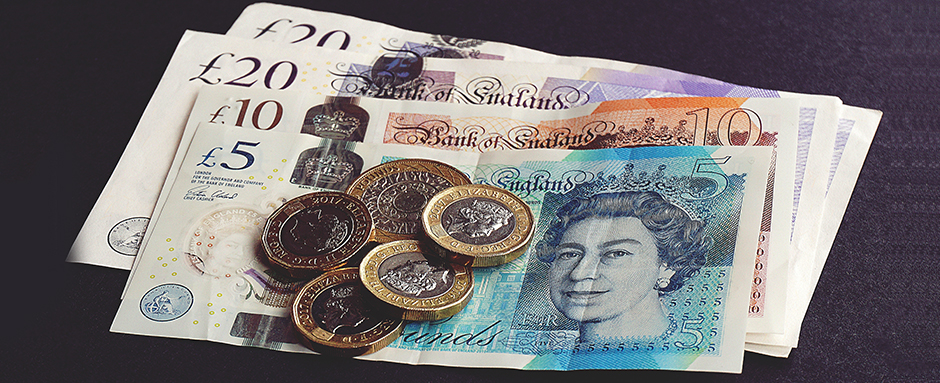As the new years go by, we promise ourselves new and exciting resolutions to make ourselves better people from who we were last year. One of the most common new year’s resolutions has to be saving money, and as we all know, this is much easier said than done.
Therefore, in this article, we will show you the best money saving challenges that we have tested as well as outlining how you can save more!
What Are the Different Savings Challenges?
Once you’ve organised your incomings and outgoings, you can then choose one of the saving challenges below to help you accomplish your savings goal.
1. The +1 Weekly Challenge

A saving challenge that I see commonly shown on social media and the web is the +1-weekly challenge. This challenge lasts for 52 weeks and encourages you to save an additional £1 depending on which week of the challenge you’re on.
For example, in week one, you’ll save £1, week two £2, week fifty-two £52. After completing this challenge, you’ll end up with a whopping £1,378. However, if you’re able to afford to save more than £1 increments, you can always increase that to a higher number, like £2, and end up saving £2,756 in a 52-week period.
So, for people that can’t afford to save a large amount each week, this is a great goal to work towards. If you just need enough to build an emergency fund, first calculate how much you need, then adjust appropriately.
2. Spend-free challenge

Something else you can try to increase your savings is to introduce “no-spend” months or weeks. By including this within your saving schedule, you’ll end up freeing up extra cash that you’d typically spend on nights out, meals, or clothes, and you’ll be able to use this to top up your savings.
When I say spend-free, I don’t mean shut off all your outgoings. Some, you’ll have to pay. But through a spend-free challenge, I would expect you to reduce your non-obliged spending habits. This will also get you into a great mindset of minimising you’re spending each month and can benefit you in the future.
If you are feeling hardcore, try a no-spend year!
3. The £1 Challenge

Something that’ll help you get out of poor saving habits is to save a pound each time you receive one. For instance, you purchase your shopping with notes, and you receive some pound coins back, you’d then save these pounds, and they’ll accumulate over time into something surprisingly impressive.
The only downside to this is that you have to spend to save. This isn’t a long-term plan, but if you are addicted to spending money, this may help you save a few quid.
4. Savings App

In today’s age, technology has rapidly grown over the years. If you really struggle with discipline when it comes to saving, I recommend you challenge yourself to use a savings app.
What do I mean by this? With the likes of applications such as Moneybox, they’re able to automatically save and invest your “spare” money without you even realising. The way Moneybox works is that you’ll connect it up with your online banking, and it’ll round up each transaction and invest/save the rest. For instance, if you buy a coffee for £2.20, the remaining 80p will be invested, rounding your coffee up to £3.00. Or you could add those pennies to a forex trading micro account to try your hand in the foreign exchange market!
There are many other savings apps that can help you save, though. Check out a comparison of Monzo and IFTTT here!
5. The Everyday Challenge

This challenge is similar to the +1 Weekly Challenge. The differences are it lasts for around a year, is more manageable, and can help you save a much more considerable amount. For this challenge to work effectively, you need to start with as little as 5p, yes 5p, and keep adding an extra 5p every day.
For example, on day one, you’ll save 5p, day two 10p, fast forward to day 10 = 50p. If you continuously do this for a whole 365 days, you would have saved £3,339 by the end of the year.
6. Outgoings Challenge

Although this isn’t a savings challenge, it can certainly help you gain access to more “free” cash. For this challenge, you’ll want to figure out how much you’ve spent on outgoings in the last six months. Once you have this number, divide it by 6 to get a monthly average.
Now the aim of this challenge is to slash your outgoings completely. Whether this means you need to eat out less, stop buying clothes or pay off debts. It’s a simple concept, but if you’re able to master a challenge like this, you’ll see a massive increase in spare cash.
How can you save more money?
If you’ve ever struggled to get on top of your savings, setting yourself challenges can be an easier way to accomplish your goals. However, before we jump into the different types of challenges that are commonly known in the saving world, let’s discuss the best way to increase your savings.
- Pay debts – To massively increase your savings, you need to maximise your potential “free” cash. In order to achieve this, you need to pay off any debts that you may have and especially ones that have a high-interest rate.
- Increase income – Next, find ways to increase your current income. Whether this is investing in assets, trying to find a better paying job, or anything where you can make money in your spare time can benefit your potential savings capability.
- Reduce outgoings –Reduce your monthly spending. This is through things like new clothes, meals out, holidays, etc. If you’re serious about increasing your savings, start by reducing what you’re purchasing on a monthly basis.
Although saving challenges are significant, it’s essential to have the above under control to make your money-saving capabilities effective. Without a solid structure of these, it’ll be relatively hard to see the results you’re wanting.
Should you pay off debt before saving?
Yes, you should pay off debt before saving money. This could free up 100’s and, if not 1000’s of pounds each month. All of which could be heading right for your savings account or into an emergency fund.
A somewhat “challenge” that helps debt payers is something called the “Snowball Method“. Within this challenge, you’ll pay off the smallest debt first (factor in overall costs, interest rates, and timescale) and then work your way up through the bigger ones. This can be super rewarding, especially as you gain access to more cash as each debt falls away.
As you can see, there are many savings challenges suited for different circumstances. Hopefully, you can find one that suits your needs. No longer will you need to keep wondering why you never have any money!
James Banerjee is a Senior SEO Manager at The AA who graduated from the University of Kent in 2014. He works at The AA, looking after the Financial Services and Cars sections on the website. Prior to this he was an Account Director working with clients such as HSBC UK and Nestle. He has a keen interest in personal finances and money-saving advice.




